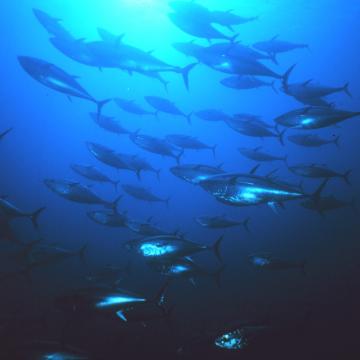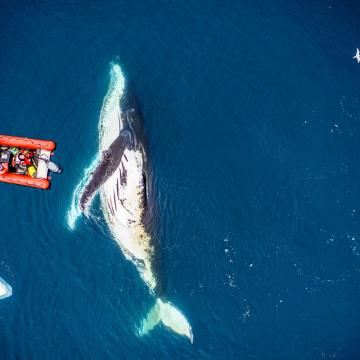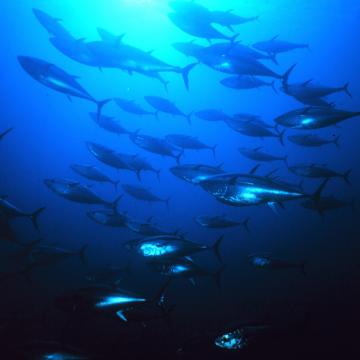-
NewsInteractive story map created for final master's project in Coastal Environmental Management program
-
NewsMan’s best friend may also be man’s best bet for figuring out how environmental chemicals could impact our health. Researchers from North Carolina State University and Duke University’s Nicholas School of the Environment used silicone dog tags as passive environmental samplers to collect information about everyday chemical exposures, and found that dogs could be an important sentinel species for the long term effects of environmental chemicals.
-
NewsSmall-scale gold mining in the Peruvian Amazon poses a health hazard not only to the miners and communities near where mercury is used to extract gold from ore, but also to downstream communities hundreds of kilometers away where people eat mercury-contaminated river fish as part of their diet.
-
NewsGovernments at every level have taken steps over the last decade to reduce the flow of plastic pollution into the world’s oceans, according to a recently published Duke University policy analysis. The analysis finds, however, that the vast majority of new policies have focused specifically on plastic shopping bags.
-
NewsReusing low-saline oilfield water mixed with surface water to irrigate farms in the Cawelo Water District of California does not pose major health risks, as some opponents of the practice have feared, a study led by Duke University and RTI International researchers finds.
-
NewsThe Migratory Connectivity in the Ocean (MiCO) system, an online open-access global database that maps the movements of sea turtles, whales, sea birds and other migratory species through the open ocean, has been awarded the 2020 Innovation Award by the Ocean Awards program.
-
NewsTo devise effective and equitable policies for governing small-scale fisheries, policymakers need to consider the activities and relationships that occur before and after fishers land their catches, not just the catches themselves, a new study shows.
-
NewsA Duke Ph.D. candidate in marine science and conservation uses drones to measure whales and other marine mammals.
-
NewsUsing a bedroom air filter that traps fine particles of pollution with diameters smaller than 2.5 micrometers can significantly improve breathing in asthmatic children, a new study by American and Chinese scientists shows.
-
NewsContaminants that occur together naturally in groundwater under certain geological conditions may heighten health risks for millions of North Carolinians whose drinking water comes from private wells, and current safety regulations don’t address the problem, a new Duke University study finds.
-
NewsChronic exposure to microplastic fibers causes aneurysms, erosion of surface layers and other serious damage to fish gills, and increases egg production in female fish, a sign that chemicals in the fibers may be acting as endocrine disruptors, a new study by U.S. and Chinese scientists finds.
-
NewsScholars across Duke are working on the complex regulations governing the use of the ocean, and studying the impact of industry on its teeming diversity of life.
-
NewsThe ratio of carbon isotopes in three common species of tuna has changed substantially since 2000, suggesting major shifts are taking place in phytoplankton populations that form the base of the ocean’s food web, a new international study finds.
-
NewsA new study which combines measurements from nearly 1,400 drinking water wells across North Carolina estimates that more than half of the wells in the state’s central region contain levels of cancer-causing hexavalent chromium in excess of state safety standards.
-
NewsInhaling dust that contains fly ash particles from coal combustion has been linked to lung and heart disease, cancer, nervous system disorders and other ill effects. But tracking the presence of coal ash in dust has been a challenge for scientists.














